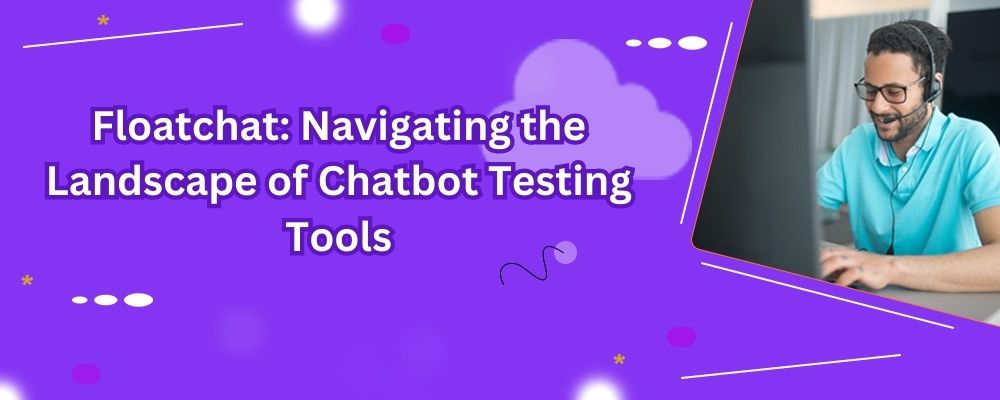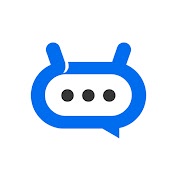Chatbot testing tools have become indispensable in the development and evaluation of chatbots. These tools offer a wide range of functionalities designed specifically to assess the performance, accuracy, and user-friendliness of chatbots across various platforms.
By employing these tools, developers can ensure that their chatbots deliver a seamless experience, accurately interpret user inputs, and provide relevant responses. One primary aspect that sets chatbot testing tools apart from traditional software testing tools is their ability to simulate human-like conversations.
These tools enable developers to interact with chatbots in a conversational manner, allowing them to evaluate how well the bot understands and responds to different queries. Through this simulated interaction, developers can identify any weaknesses or flaws in the chatbot's language processing capabilities or its overall functionality.

Definition of Chatbot Testing Tools
In essence, chatbot testing tools refer to specialized software applications or platforms that facilitate the evaluation and analysis of chatbots. These tools provide a comprehensive set of features explicitly tailored for assessing various aspects of chatbot performance such as accuracy, response time, scalability, adaptability across different platforms, compatibility with external systems (such as APIs), and adherence to specific business goals.
Unlike manual testing methods where human testers engage in conversations with the bot themselves (which can be time-consuming and subject to human bias), automated chatbot testing tools streamline the process by mimicking real-world interactions through pre-defined test scenarios or by utilizing artificial intelligence techniques. These AI-driven tools often employ natural language understanding (NLU) models or machine learning algorithms to comprehend user inputs effectively.
Importance of Testing Chatbots
Properly testing chatbots is crucial because they serve as an integral part of modern-day customer service experiences. Given their ability to automate repetitive tasks and handle customer inquiries efficiently without direct human involvement, it is essential that bots perform optimally and reliably. Testing chatbots helps identify and rectify any issues that could hinder the user experience or lead to misinterpretation of user inputs.
Chatbot failures, such as incorrect responses, slow response times, or crashes, can undermine customer trust and damage a brand's reputation. By thoroughly evaluating these conversational agents with the help of testing tools, developers can ensure that chatbots are reliable, accurate, and capable of delivering a satisfying user experience.
Overview of Different Types of Chatbot Testing Tools
There is a wide variety of chatbot testing tools available in the market today, each offering unique features and capabilities to address specific testing requirements. These tools can be categorized into several types based on their functionalities:
- Script-based Testing Tools: These tools allow developers to create predefined test scripts that simulate user interactions with the chatbot. They are particularly useful for evaluating the bot's responses in different scenarios.
- Emulator Tools: Emulator tools create virtual environments where developers can test their chatbots without deploying them on production platforms. This type of tool enables comprehensive end-to-end testing while providing a safe space for experimentation.
- Language Processing Evaluation Tools: Language processing evaluation tools focus on analyzing the accuracy and effectiveness of Natural Language Processing (NLP) models within the chatbot. They assist in fine-tuning language understanding capabilities to ensure better comprehension and handling of various inputs.
- Load Testing Tools: Load testing tools simulate high volumes of traffic to assess how well a chatbot handles heavy usage scenarios without degradation in performance or response time. Understanding these different types of chatbot testing tools is crucial for selecting an appropriate toolset that aligns with specific testing goals and requirements during the development process.
High-Level Overview of Popular Chatbot Testing Tools
Tool 1: Botium
Botium is a prominent chatbot testing tool that offers a comprehensive set of features and functionalities to ensure the quality and accuracy of chatbots. It provides an intuitive user interface, making it accessible even to non-technical users.
Botium supports various chatbot platforms, including popular ones like Facebook Messenger and Slack, allowing testers to evaluate the performance of their chatbots across different channels. With its extensive compatibility, Botium enables efficient testing in real-world scenarios.
One significant benefit of using Botium is its ability to handle multiple interaction types, such as text-based conversations and voice interactions. It allows testers to simulate both user inputs and expected responses, facilitating thorough examination of the chatbot's behavior.
However, one limitation of Botium is its learning curve for complex test scenarios or custom integrations. Users may require some technical knowledge to fully leverage its potential.
Tool 2: Testim.io
Testim.io is another powerful tool in the realm of chatbot testing that offers a range of essential features for ensuring high-quality performance. This tool focuses on simplifying the testing process by providing a codeless approach that allows testers to create robust test cases without requiring advanced programming skills.
With Testim.io's intuitive visual editor, users can easily define test flows and simulate user interactions. Testim.io also stands out due to its seamless integration with popular messaging platforms like WhatsApp and Telegram.
This integration enables testers to evaluate their chatbots directly within these environments, providing a realistic testing experience. Additionally, Testim.io offers strong collaboration capabilities where multiple team members can work simultaneously on creating and executing test cases.
However, one disadvantage of Testim.io is its limited support for some niche messaging platforms or custom-built bots. While it excels in supporting widely-used platforms, it may not cater to certain specialized chatbot deployments.
Tool 3: Chatbase by Google
Chatbase by Google is a unique chatbot testing tool that focuses on analyzing user interactions and intents, providing valuable insights into the performance of chatbots. It seamlessly integrates with Google's Dialogflow platform, enhancing the testing experience for developers using Dialogflow-powered bots.
With Chatbase, testers can gain detailed metrics and analytics about user conversations, enabling them to identify bottlenecks or areas of improvement in their chatbots. One notable strength of Chatbase is its advanced analytics capabilities.
It offers features like message flow analysis and intent analysis, which empower testers to understand how users interact with their chatbots at a granular level. Moreover, Chatbase provides recommendations for optimizing chatbot responses based on user behavior patterns.
However, a potential weakness of Chatbase is its limited compatibility with non-Dialogflow platforms. While it excels in integration with Dialogflow-based bots, users employing other frameworks may find limited support from this tool.
Niche Subtopics in Chatbot Testing Tools
A: Voice-Enabled Chatbots Testing Tools
Voice-enabled chatbots are gaining popularity due to their natural interaction capabilities. Specialized tools like Bespoken are designed explicitly for testing voice-enabled chatbots.
These tools simulate voice interactions by generating speech-based inputs and evaluating the corresponding responses. By accurately replicating real-world voice interactions, these tools ensure the accuracy and reliability of voice-powered chatbots.
Whether it's mimicking different accents or handling speech recognition intricacies, dedicated voice-enabled testing tools provide a comprehensive environment for validating the performance of such chatbots effectively. They allow testers to verify if the voice responses align with the expected behavior and ensure an optimal user experience across various scenarios.
B: Multilingual Chatbot Testing Tools
The global reach of chatbots requires support for multiple languages. Tools like Botpress specialize in offering multilingual support for testing chatbots across diverse linguistic contexts.
These tools enable testers to validate the functionality and linguistic accuracy of chatbots in different languages, ensuring that they can effectively communicate with users from various cultural backgrounds. However, multilingual chatbot testing poses unique challenges.
Testers need to consider variations in grammar, vocabulary, and cultural nuances when evaluating the responses of multilingual chatbots. Tools like Botpress assist testers by providing language-specific resources and facilitating the translation process, thereby streamlining the validation of multilingual chatbot deployments.
C: Natural Language Processing (NLP) Evaluation Tools
Natural Language Processing (NLP) plays a crucial role in enhancing the conversational abilities of chatbots. NLP evaluation tools such as Rasa NLU focus specifically on evaluating the performance and accuracy of NLP models used within chatbots. These tools help testers assess how well a chatbot understands user inputs and generates appropriate responses based on trained language models.
By offering detailed insights into important metrics like intent recognition and entity extraction, NLP evaluation tools enable testers to fine-tune their NLP models effectively. They help identify areas where improvements are needed to enhance language understanding and intelligibility in order to deliver more satisfying user experiences with chatbots.
Conclusion
The world of chatbot testing is supported by a wide array of specialized tools that cater to various aspects of testing requirements. From general-purpose tools like Botium that offer comprehensive features for robust testing across multiple platforms to niche tools like Bespoken that focus on voice-enabled interactions or Rasa NLU specialized in evaluating NLP models, there is a tool available for every aspect of validating the performance and quality of modern-day chatbots.
These innovative solutions empower developers and testers alike to ensure optimal user experiences by identifying potential issues or areas for improvement in their chatbot deployments. As the field of chatbot development continues to evolve, so too will the landscape of chatbot testing tools, providing ever more sophisticated ways to ensure the success of these intelligent conversational agents.


No comments yet